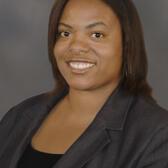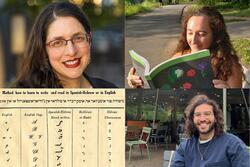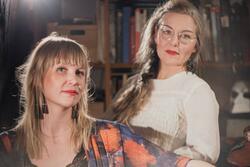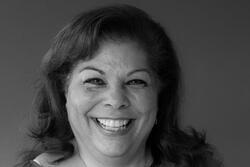Q & A with Ladino Musician Nani Vazana
Ladino singer Nani Vazana always wanted to be a musician. Little did her parents know when they signed her up for piano lessons at age five that they were setting the stage for what would become a musical career powered by the revival of Ladino culture and language.
In her song “Çok Seni Severim,” the reiteration of the syncopated theme creates a swiveling foundation for Vazana’s lively push into a dynamic melody. The song showcases her range as a singer, and the strategic placement of rougher textures in her voice gives a modern sensibility to the track. The arrangement is beautifully layered: flamenco-inspired guitar licks peek out from beyond the powerful theme, gently veiled by brush-rubbed cymbals.
Born and raised in Beersheba and currently living in Amsterdam, she’s currently on tour, and delighting her growing and dedicated audience. I chatted with Vazana over Zoom.
JWA: How did you get started in music?
Nani Vazana: I always knew that I wanted to be a musician since I was three years old. At age five, I started improvising and writing melodies. I started playing trombone at age nine. I was in a youth wind ensemble and then joined a Big Band Jazz orchestra around age fourteen.
JWA: Did you and your family always know that you would have success as a professional musician?
NV: In my eyes, I always had to work hard. But also, my family wasn’t always supportive. They were like, "Yeah, you’re no Beethoven. Go to university and get a profession." Some of my music teachers really liked me and said, "You got this." But others told me, "You’re not talented enough. You’ll never amount to anything. You’re still young—you should switch to something else." But I was never interested in something else, and I just stuck to music.
JWA: What inspires you to start writing a song?
NV: I believe ideas come to me, like they're alive. They coexist with us; they need artists to become a reality, and we need ideas to feel inspired. I don’t write alone, but in collaboration with an idea; the process is symbiotic. Like in nature, there are mushrooms that won’t grow unless there’s a tree. It’s not only me—if you think it’s only you, then it becomes about the ego.
JWA: Does that take off some of the pressure to write the best song, right now?
NV: What is the best song? It doesn’t exist. You write a song and think it’s great, [but] you have no idea what’s going to happen to it. It will evolve and people will find new meanings in your songs that you never thought of. It happens all the time. About every two weeks, I have people write to me. One lady said that after her husband died, she couldn’t get out of bed without that one song. That song was about a breakup—it had nothing to do with death. Another person wrote that they listened to the music while recovering from surgery. You never know what will happen when you release a song.
JWA: Tell us about your experience with the Eurovision Minority Languages song contest.
NV: Earlier this year, I won the competition! My song "Una Segunda Piel"("A Second Skin") was chosen to represent the Netherlands. The morning of the competition, I found out my father had died. I couldn’t get home because there were no flights and I was going to miss the funeral. I had to make a choice: Am I going to sing tonight or not? But then, I thought about the meaning of this song, which talks about the transition of the soul into the afterlife. I decided to perform the song as a ritual to honor my father. I thought I was going to sing badly because I was so sad, but I won the competition. The song now has its own life and connects me with my father.
JWA: Your work as a musician is almost like having two different jobs: one as a live performer, and one as a composer, when no one is watching.
NV: It is. Performing is very different from songwriting; you need to connect to different things in yourself. I think songwriting is very introspective, and often when I write a song, I have to be totally alone to do it and let the ideas come to me. I need time to be with the idea for a while, and we explore each other.
But when you’re performing, you’re sharing a story with a group of people and you’re experiencing something together. There’s a flow of energy from the audience, and I give them energy back. It’s real—it’s not just a figure of speech. This is why a lot of artists don’t do both performing and songwriting, because they require very different things from you.
I always connected to artists who did both performing and songwriting. When I hear a musician and I connect to them, they always have written their own songs.
JWA: Who are your favorite artists?
NV: I love Nina Simone—we’re doing a tribute show to her. I love Sting, Neil Young, Joni Mitchell. Tori Amos is one of the bigger influences. But I also love a lot of jazz musicians, like Bill Evans and Chick Corea. I enjoy live jazz too—those are very special shows. I also like classical, like Bach and Debussy. My musical world has all parts of the spectrum. You can hear it in my music—I’m influenced by many different styles.
JWA: Switching gears, let’s talk about your heritage. Your family is originally from Morocco. What was their experience there?
NV: My parents were both born in Morocco, but my father came to Israel when he was one year old and my mother when she was three. My maternal grandmother’s family owned a publishing house that would print newspapers. That was a big thing back then, because there was no TV and little radio. The family publishing company never published in Ladino; the only Ladino language newspapers were in Turkey. My parents, who were both from immigrant families, tried to recreate themselves as new people [in Israel]. It was a new country, and they tried to assimilate into the community.
JWA: Were you around other families from the same culture?
NV: No. Even at home, my father forbade us to speak Ladino. I only spoke it when I was alone with my grandmother. Even though he didn’t say it aloud, I think it was my father’s way to leave the past behind and become this new Israeli identity.
I didn’t know a lot about Ladino culture growing up, because it was hidden. As a kid, I always tried to keep my curiosity, as I do now. I had to rediscover Ladino culture. I feel it’s something that’s really worth protecting. If you don’t have your culture, you lose a big part of who you are.
My culture ‘clicks’ with my values, my hopes, and my dreams. There are so many folktales, it’s easy to fall in love with it. It’s a part of me.
JWA: What is your relationship to the Jewish tradition like? Are you spiritual or practicing?
NV: I’m not practicing, but I am spiritual. I believe that ideas have their own life, which is very kabbalistic. I don’t have a set structure of faith. I do celebrate the holidays with my friends and family, which I like doing, but I can’t say that I’m a believer.
My husband is more interested in practicing. He likes going to synagogue and putting on tefillin. Traditional practice doesn’t attract me; I don’t need the ritual to know there’s something bigger than me.
JWA: Are there any Ladino musicians that have inspired you?
NV: It’s hard to say, because when I grew up, the Ladino music that I was exposed to was very dramatic and old-fashioned. I wanted to make music that was younger and expressive, and songwriting that focused on the melody and the lyrics. A lot of the well-known Ladino musicians focused on the beauty of the voice. Traditional Ladino music features a flurry of notes on just one syllable, for example. The tradition praises a great singer’s embellishments, but for me, the focus is on the message of the song.
I think that’s why my music is connecting with a younger generation. The old traditions of singing opera or medieval ballads is not something that young people will connect to.
JWA: What is your next goal? How will you know that you’ve “made it”?
NV: I feel like I’ve already made it. I don’t think that you need an award or something like that. That gives you recognition, but it doesn’t make you more connected to who you are or [prove] that your songwriting is better or that you’re a better performer. I don’t need accolades so much. I just want to continue what I’m doing now.
I do want more people involved. The goal of making music is connecting as many hearts as possible, to try and build a community. Because I'm making music in Ladino, I don’t feel that it’s only mine; it also belongs to a greater community. I hope to inspire people to learn more about the language and look for their roots. We can explore the language together; there’s power in numbers, and the language won’t die out in our generation.






